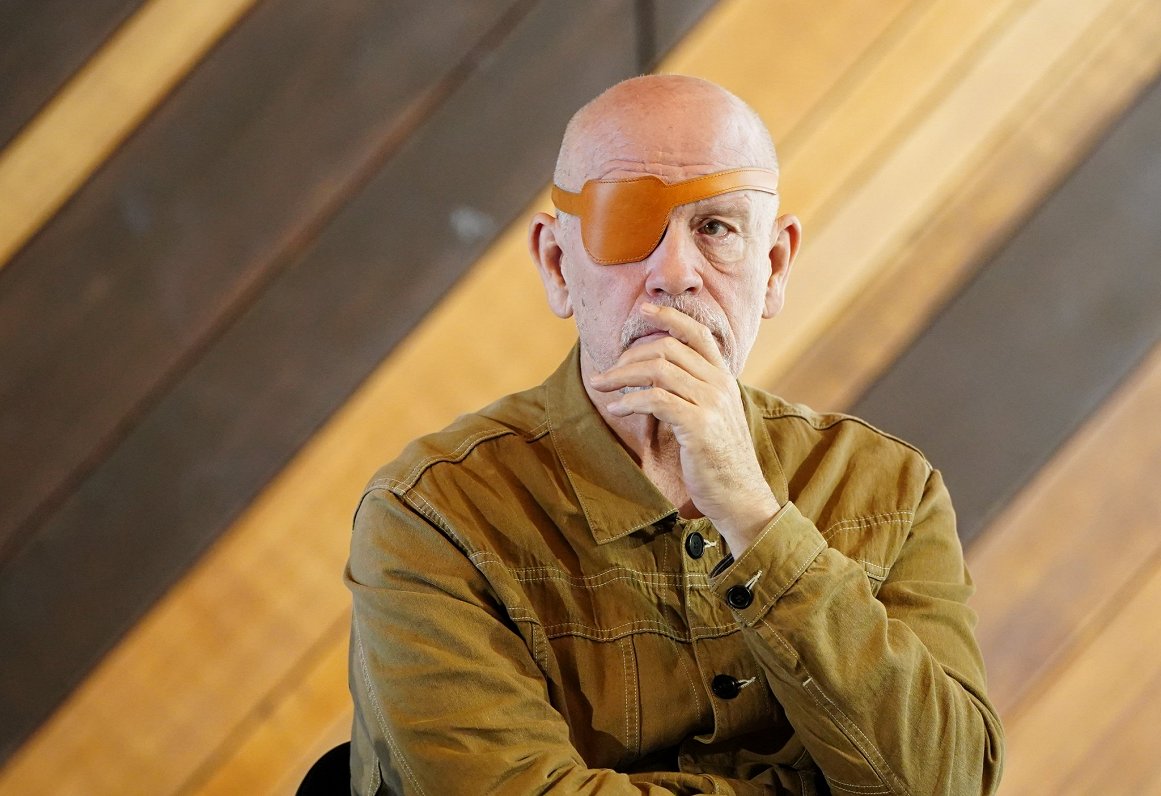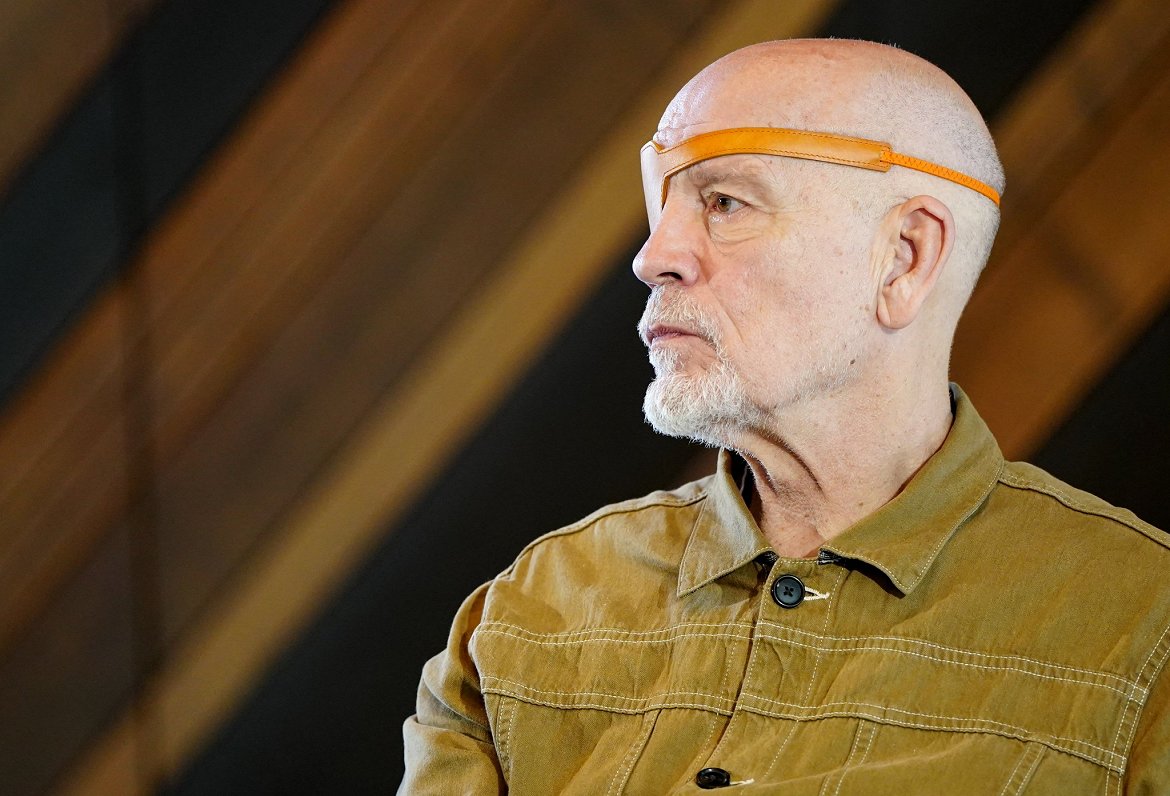Right now his distinctive features adorn the walls of the Latvian national art museum in a playful exhibition with the in-your-face title 'Malkovich, Malkovich, Malkovich' which sees him cosplaying various classic photographs from the canon of that particular art form.
Anyone still feeling Malkovich-deficient will have a chance to get a fresh hit of the famous figure when he returns to the Dailes Theater this month in a production of 'Leopoldstadt' by Tom Stoppard which will have its first performance on September 15. This time around though, Malkovich is directing a Latvian troupe of actors rather than starring center-stage himself. Another sold-out run seems a certainty.
The great man was kind enough to spare a few minutes for LSM's Daira Āboliņa to talk about what it's like Being John Malkovich in Latvia.
Daira Āboliņa: “Leopoldstadt” is an excellent play by Tom Stoppard. Why is it important for you as director to work with the topic of the Holocaust today?
John Malkovich: I probably don’t think so temporally, meaning – about what’s important today or not important today. I’m more interested in stories that I like to tell, that I think are interesting stories. I have always been fascinated by Vienna, and this is part of Austrian and Viennese history, a very tragic part. Obviously, I love Tom Stoppard as a writer and I like this play very much. I think it is always worthwhile to remind people what humans are capable of, in wonderful ways and in not so wonderful ways.
Do you consider this play to be political?
Not particularly. This play tells the story of this particular family, quite a number of people in this particular family. It tells the stories of their childhood, early adulthood, their adulthood and their ends. I wouldn’t say it is particularly political. Historical, but not political.

Why did you decide to stage this play in Latvia, with Latvian actors.
Juris Žagars asked me if I would be interested in directing a play here. We spoke about a number of plays, but he was most excited about doing “Leopoldstadt”. And since I’m someone who has spent a lot of time in Vienna, have worked there many times, and have spent a good deal of time reading and experiencing Viennese history and culture, it was quite a natural thing for me to do.
The characters in the play ask each other difficult questions, and the play also poses these questions to the audience – why did the holocaust happen, why did it happen to Jewish people. Do you have an answer to these questions?
Not really. For me – I’m not Jewish – it’s been a big mystery as well. The extent of it is so barbaric, so inhumane and so insanely cruel, that it sort of stretches the imagination to think that people were capable of doing what they did.
Reviewers have noted that the play is characterised by a symbiosis of tragedy and comedy. Have you tried to keep both of these elements in your production?
For me, and this is something that to a great extent comes from Jewish culture, tragedy is comedy refocused. In other words – it’s a tragedy if it happens to me, but it’s comedy if it happens to you. I think the two are slightly inseparable. Of course, there are instances of only tragedy or only comedy. But in my mind the two coexist quite often and quite easily. And I love comedy, so I certainly wouldn’t take out anything funny if I could help it.
Do you have plans to return to Latvia, work with Latvian artists in the future?
I’m supposed to come back in November for a performance of a piece called “The Music Critic”, but it depends on what happens with my recent eye surgery, if I’m able to travel.
What is your impression of Latvia after having worked here for a short while? You could work anywhere in the world, why choose Latvia?
I came here last year for the first time in January to rehearse the play Ingeborga Dapkunaite and I did here at Dailes theatre and which we are still touring (“In the Solitude of Cotton Fields”). I liked it very much. I don’t much see what’s not to like. Sure, I can work in Paris, New York, London, Mexico City or Moscow, all of which I have done, but those are not the only places in the world that interest me. I work all over, really.
What has your time here been like?
A lovely time. This is a terrific group of actors. I very much enjoy watching them. It’s really been a pleasure to work on.































